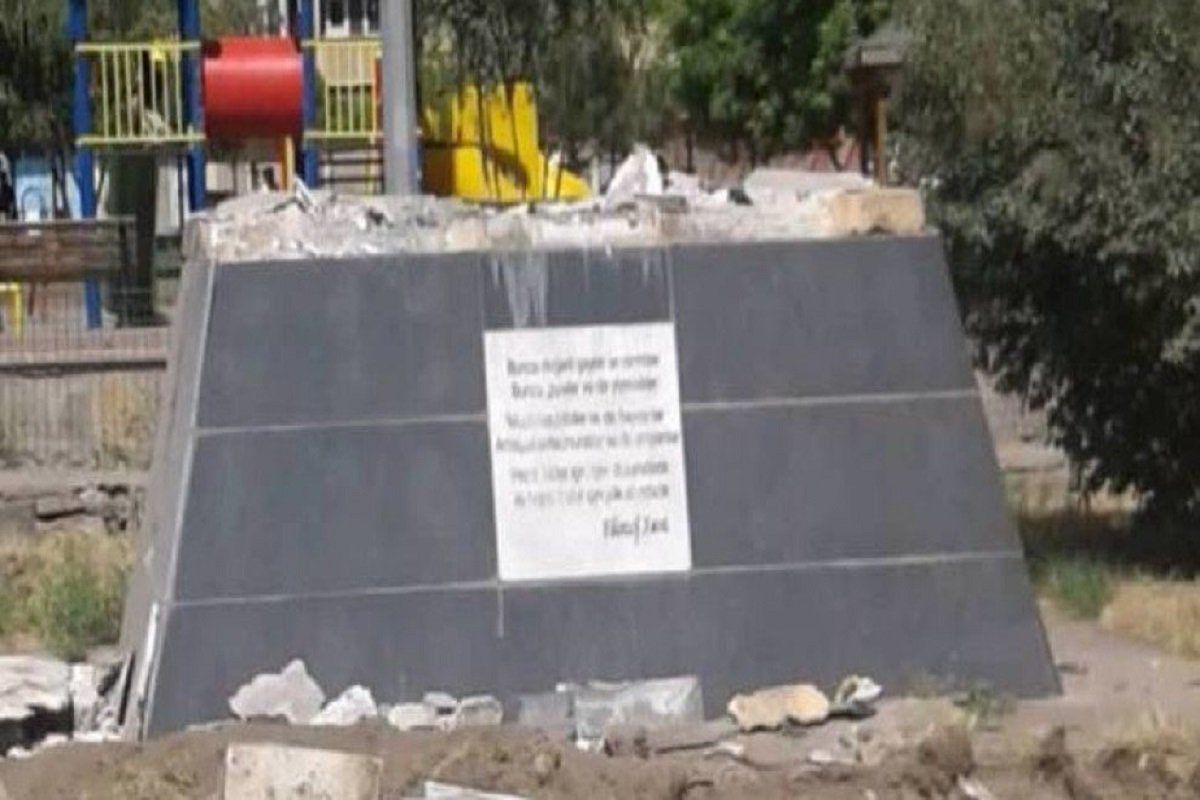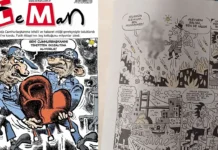Trustee Ulaş Akhan, who was appointed by the government of Turkey’s autocratic President Recep Tayyip Erdoğan to replace pro-Kurdish Peoples’ Democratic Party’s (HDP) mayor of Doğubeyazıt disctrict of Ağrı province, has demolished a monument of famous Kurdish philosopher, writer and poet Ahmad-i Khani.

Ahmad-i Khani (1650 Hakkari-1707 Doğubeyazıt) was a Kurdish writer, poet, astronomer and philosopher. He was born amongst the Khani’s tribe in Hakkari province. He moved to Bayezid and settled there. Later he started with teaching Kurdish (Kurmanji) at basic level. Khani was fluent in Kurdish, Arabic and Persian. He wrote his Arabic-Kurdish dictionary “Nûbihara Biçûkan” (The Spring of Children) in 1683 to help children with their learning process.
His most important work is the Kurdish classic love story “Mem and Zin” (Mem û Zîn) (1692). His other work include a book called Eqîdeya Îmanê (The Path of Faith), which is part poem and part prose. The book explains the five pillars of Islamic faith. It was published in 2000 in Sweden.
A monument, which was erected in the memory of slain Uğur Kaymaz, the 12 year old boy killed with 13 bullets by security forces, was removed from Kızıltepe district of Mardin province on June 10.
The Lamassus statue in front of the Diyarbakır Metropolitan Municipality, the Orhan Doğan relief in Cizre, the Roboskî monument in Diyarbakır, reliefs from the Mervani civilization in Diyarbakır and the Ahmed Arif statue in Diyarbakır were also removed or destroyed since the trustees took office.
June 28, 2017















